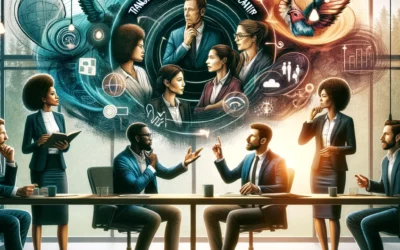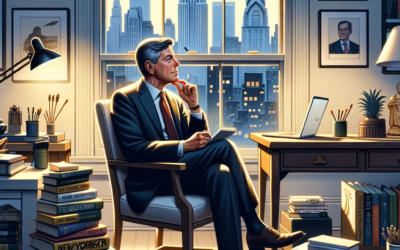This is Part III of a three part blog interview with Noah Blumenthal author of Be the Hero: Three Powerful Ways to Overcome Challenges in Work and Life.
Gary B. Cohen: Mary Oliver wrote the poem, “Wild Geese,” which starts:
You do not have to be good.
You do not have to walk on your knees
for a hundred miles through the desert, repenting.
You only have to let the soft animal of your body
love what it loves.
How do you prevent yourself from the trap of…having to be good…and not accepting yourself?
Noah Blumenthal: First of all, I love the sentiment in this poem. The thing about being a hero is that it is a pragmatic tool for moving forward, not for being perfect. In this moment, right now, what would the hero do? This question isn’t an evaluation of what you’ve done before. It’s a tool to guide you toward a better next step. Who would beat themselves up over their past? The hero or the victim? Obviously the victim. What would the hero do instead? Forgive himself and others if he can. Either way, look forward at what positive action he can take next.
Some say that a “victim” mentality is instilled early in life (you are a product of your environment) and tough to change. What is your response to that?
We are certainly influenced early in life, but the mentality of hero or victim comes down to behaviors that you can train yourself in or out of. It’s like muscle memory. If you grew up driving on the right side of the road and then move to a country where they drive on the left side, you will find yourself constantly looking the wrong way when you make turns. But over time this will lessen, and eventually the new driving patterns are second nature. You may have a momentary lapse back to your old ways every once in a while, but your fundamental behavior pattern will have shifted.
The victim and hero mentality is no different. Immerse yourself in heroic thinking for a time. Surround yourself with people who embody heroism. Practice the new behaviors. Before long it will be second nature.
Seriously, I struggle with patience with my kids, understanding with my wife, acceptance with career situations that don’t go as I’d like. I’m human, and human emotions of anger, frustration, and anxiety are all normal and valuable. They tell us what is happening around us. If there is anything that makes me different, it isn’t that I have a perfect family and career and life. It’s that when things aren’t perfect and I feel these negative emotions I understand them and reverse them quickly, turning them into positive action. And that’s a skill anyone can learn.
I am extremely proud of the parable and so grateful to my editor, friends, and family for all of their comments on all of the drafts – helping me make it what it is. The thing I would change is the resource section. I don’t think we learn very well from books. They are a starting point, but too often they are viewed as the entire journey. So I would have added more to the resource section for people to refer back to. Fortunately, the book’s website (www.be-the-hero.com) has a resource section where I am able to put all of the new ways I can think of to support people in their efforts.
The concepts of Be the Hero come from several places. Buddhism tells us that our lives are the creation of our minds. Positive psychology shows how empathy, gratitude, and hope are extremely powerful forces in building resilience and experiencing greater happiness. Cognitive psychology shows us how mental routines can lead to more effective emotional and behavioral responses. Emotional Intelligence tells us that self-awareness of our and others’ emotions helps us react effectively to various challenges. And neuroscience, specifically the field of neuroplasticity, tells us that consistent behaviors and routines can actually reprogram our brains for long lasting effects.
Given the times we live in, what do you say to the millions of Americans who studied hard, worked hard, saved hard and did everything right and yet are now finding themselves in a serious lurch because of the economic downturn?
Define lurch. Most Americans are still living in heated homes and eating well. If we all have to spend a few years (or even many years) living a less luxurious life, that isn’t the worst thing in the world. This will pass. Most of the jobless will eventually return to work. Those living with friends or relatives will eventually be able to afford their own place to stay.
If you worked hard, saved hard, and did everything right, go back to doing those things. Res
et your expectations and focus on doing what you can today. Even in this economy there will be those who respond well and find success. In fact, this could very well be your greatest opportunity to be the hero.




